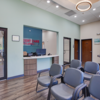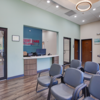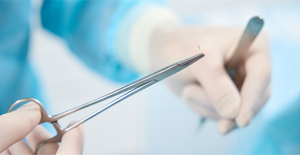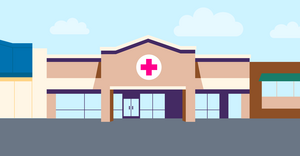Book urgent care & walk-in clinics near me in Decatur, GA
Own a clinic? Add your location.
Help patients book appointments with you on Solv. It's free!
17 instant-book locations

Atlanta Urgent Care, Druid Hills
Atlanta Urgent Care
Today
View more
Atlanta Urgent Care, Peachtree Buckhead
Atlanta Urgent Care
Today
View more
Privia Virtual Clinic, Georgia
Privia Virtual Clinic
Today
View more
AFC Urgent Care, Chamblee-Brookhaven
AFC Urgent Care
Today
View more
Comprehensive Primary & Urgent Care, CPAUC of Atlanta
Comprehensive Primary & Urgent Care
Today
View more
Atlanta Urgent Care, Peachtree Corners
Atlanta Urgent Care
Today
View more
AFC Urgent Care, East Cobb
AFC Urgent Care
Today
View more
Macley Family Practice and Walk-In
Macley Family Practice and Walk-In
Today
View more
Sugarloaf Urgent & Primary Care
Sugarloaf Urgent & Primary Care
Today
View more
Atlanta Plus Urgent Care, Conyers
Atlanta Plus Urgent Care
Today
View more
AFC Urgent Care, Kennesaw
AFC Urgent Care
Today
View more
Atlanta Plus Urgent Care, Covington
Atlanta Plus Urgent Care
Today
View more
Quik Clinic, Tucker
Quik Clinic

Quik Clinic, Marietta
Quik Clinic

AFC Urgent Care , Marietta
AFC Urgent Care

AFC Urgent Care , Woodstock
AFC Urgent Care

Atlanta Plus Urgent Care, Sandy Springs
Atlanta Plus Urgent Care

Atlanta Plus Urgent Care, Mcdonough
Atlanta Plus Urgent Care

Urgent Team, Kennesaw
Urgent Team

Concentra Urgent Care, Decatur
Concentra Urgent Care
Premier Family Medicine Center
Premier Family Medicine Center
Own a clinic? Add your location.
Help patients book appointments with you on Solv. It's free!
Discover Decatur Healthcare with Solv
Solv simplifies your search for healthcare in Decatur by seamlessly connecting you with urgent care and walk-in clinic options. With Solv, you can easily locate nearby clinics, access their ratings and reviews, view their hours of operation, and directly book same-day appointments with trusted providers. Our platform offers convenient features such as saving your appointment history for instant re-bookings and tracking your health insurance usage and deductible. Whether you're seeking care for sudden illnesses or minor injuries affecting you, your family, or your children, Solv streamlines the process by allowing you to filter by insurance acceptance, pediatric services, and current availability.
What to Expect with Your Visit
When you seek urgent care in Decatur, anticipate an efficient process designed to address your health concerns. For the best experience, it’s important to properly prepare for your visit and understand the likely expectations once you enter the clinic.
Preparing for Your Visit
A successful urgent care visit starts with good preparation. Here's how you can get ready:
- Where possible, book a visit online with Solv to save time waiting in the clinic
- Bring your ID, insurance card, and an accepted method of payment
- List your current medications, allergies, and any chronic conditions you may have
- Prepare a brief description of your symptoms and concerns, including their onset
- Think of any questions you might have for the healthcare provider
During Your Visit
You'll receive immediate attention from skilled healthcare professionals at the urgent care center focused on promptly diagnosing and treating your condition. Expect:
- A brief wait, depending on the clinic's volume and whether or not you booked ahead with Solv
- Check-in by providing your ID, insurance, reason for your visit, and completing initial registration paperwork
- A consultation with a healthcare provider to discuss your symptoms and medical history
- Possible diagnostic tests (e.g., X-rays or lab tests), if needed
Treatment may include prescriptions, wound care, or other immediate interventions.
Following your visit, ensure you understand home care instructions or medication usage. You might also receive referrals for specialist care or requests for follow-up visits to monitor your condition. Communication with your healthcare provider is key, so don't hesitate to reach out with any post-visit questions or concerns.
Urgent Care FAQs
What is urgent care?
Urgent care is a healthcare service focused on providing immediate, non-life-threatening medical attention. Urgent care centers treat conditions such as sprains, cuts, burns, and common illnesses and offer a range of services, including diagnostic and preventive care like immunizations and physicals. With an estimated 15,000 clinics in the U.S., urgent care centers operate beyond traditional primary care office hours, offering a convenient and lower cost alternative to emergency rooms for urgent but minor health issues.
What is a walk-in clinic?
A walk-in clinic is a type of healthcare facility that provides medical care to patients without the need for an appointment. These clinics cover a range of services such as urgent care, occupational medicine, and primary care with walk-in availability. They cater to non-emergent health issues, offering a convenient option for accessible medical attention. Walk-in clinics vary from free services provided by government, charity, or foundation-operated facilities to private clinics with affordable rates, serving as a practical alternative for minor illnesses and injuries outside of traditional doctor's offices and emergency rooms.
Do urgent care centers in Decatur take appointments?
Historically, urgent care centers were strictly an on-demand, walk-in healthcare service. More recently, as consumer behaviors and expectations have evolved, many urgent care clinics have begun offering book ahead visits, allowing consumers to select a same-day or next-day time that works best for their schedule. Use Solv to find a Decatur urgent care center that offers advanced bookings (or appointments) and book online.
Are Decatur urgent care centers open after hours?
Yes. Most primary care doctor offices are open during routine work hours, Monday thru Friday, 9:00 am to 5:00 pm. Conversely, most of the urgent care centers in Decatur are available after hours, on weekends, and many holidays. Typical urgent care hours are 8:00 am to 8:00 pm daily, although location-specific hours may vary.
How much will an urgent care visit in Decatur cost?
The cost of a visit to an urgent care in Decatur varies, with cash prices for the base visit generally ranging from $100 to $175. Additional treatments, such as lab tests, X-rays, or immunizations, can increase costs, typically between $50-150 each. If you're using insurance, expect a co-pay between $20 and $50, depending on your plan and whether the clinic is in-network. Prices differ based on location, so it's best to check directly with the urgent care center and your insurance provider for accurate cost estimates.
Related Searches
Drug Test in Decatur, GA
A1C Test in Decatur, GA
DOT Exam in Decatur, GA
Ear Wax Removal in Decatur, GA
Pregnancy Test in Decatur, GA
Sports Physicals in Decatur, GA
STD Testing in Decatur, GA
DNA Test in Decatur, GA
Blood Test in Decatur, GA
Lab Tests in Decatur, GA
Diabetes Test in Decatur, GA
Flu Test in Decatur, GA
Basic Metabolic Panel in Decatur, GA
Diagnostic Test in Decatur, GA
Cholesterol Test in Decatur, GA
Glucose Test in Decatur, GA
CMP Test in Decatur, GA
Allergy Testing in Decatur, GA
Strep Test in Decatur, GA
TB Test in Decatur, GA
Urinalysis in Decatur, GA
Vitamin D Test in Decatur, GA
H Pylori Test in Decatur, GA
Mono Test in Decatur, GA
Pulmonary Function Test in Decatur, GA
RSV Test in Decatur, GA
Thyroid Test in Decatur, GA
Pediatric Urgent Care in Decatur, GA
COVID-19 Pill in Decatur, GA
COVID-19 Testing in Decatur, GA
Retail Clinic in Decatur, GA
Dermatologists in Decatur, GA
Hepatitis test in Decatur, GA
Aetna Urgent Care
Blue Cross Blue Shield Urgent Care
Cigna Urgent Care
COVID-19
Flu
United Health Urgent Care
» All services in Decatur, GAFind urgent care
Nearby cities
Popular Brands in Decatur
Everyday Healthcare, Simplified
Expert advice to help you live your best life







